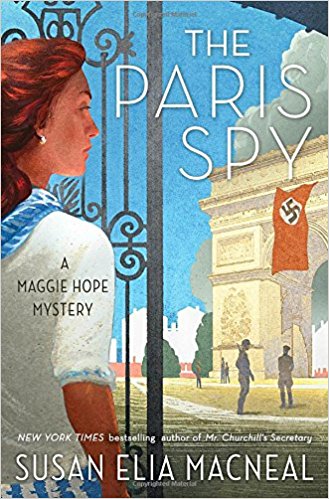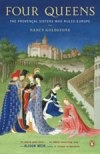 In July I joined the #Firemanalong, a group read hosted by Care’s Books and Pies and The Capricious Reader. The Fireman is the newest book from Joe Hill, son of Stephen King, about whom I’ve been most curious.
In July I joined the #Firemanalong, a group read hosted by Care’s Books and Pies and The Capricious Reader. The Fireman is the newest book from Joe Hill, son of Stephen King, about whom I’ve been most curious.
I was all set for this to be a new favorite, especially after reading the opening page, in which Hill cites as “inspiration”: J.K. Rowling, P.L. Travers, Julie Andrews … and Ray Bradbury. Excellent!
Hill has fun with his allusions, one moment citing Samuel Beckett and then MTV VJ Martha Quinn. There are also nods to Dumbledore, The Lion, The Witch, and the Wardrobe, Graham Greene, Mary Poppins, and, of course, zombies.
The Fireman starts out much like one of King’s novels in that it grabs you straightaway. It was an exciting and addictive page-turner … right until about page one hundred and forty-something, when it really slowed down. Considering the book was 747 pages, I wish Hill had kept up the thrill ride a bit longer.
The first part deals with an outbreak of a mysterious epidemic of “Dragonscale,” which causes its victims to self-combust. Hill offered a plausible and scientific explanation for the disease and that kept me invested.
Our heroine is a plucky nurse named Harper (after another of Hill’s favorite authors) who volunteers as a nurse and ultimately gets infected.
The scenes of mass hysteria and of the unraveling of society were believable and suspenseful. There’s a compelling, vivid urgency that makes you think, wow, this could happen. There are also several buzzy cameos: George Clooney, President Obama, and Glenn Beck.
 It wasn’t until Harper joined a sort of commune for the infected, Camp Wyndham, that the book stepped into the slow lane and became more of a morality tale. I felt Hill had pulled a bait-and-switch—I wanted more of the excitement that he had teased me with for over 100 pages.
It wasn’t until Harper joined a sort of commune for the infected, Camp Wyndham, that the book stepped into the slow lane and became more of a morality tale. I felt Hill had pulled a bait-and-switch—I wanted more of the excitement that he had teased me with for over 100 pages.
Instead, I got lots and lots (and lots) of backstory! I don’t know why Hill decided to go the route of having all the subplots and complications relayed second-hand. Hill is a master of twists and turns, but this genius was somewhat diluted because instead of experiencing it … we had it retold by other characters. I like my suspense real-time.
In particular, the Harold Cross subplot and the prison story would have been so gripping to read as they occurred. I cannot think why we had to hear about them postmortem? I wanted to be in there with the prisoners, looking around and fearful of what might happen next. What did happen would have been much more chilling to me if I didn’t already know who would survive. Also, the Mazz and Father Story question would have been spookier and more complicated if I had first known and identified with Mazz.
The Harold Cross thread reminded me of something from 24—the stray character who makes a series of judgment errors that escalate. I just wish I had gotten to experience that paranoia and tension. Likewise, I would have cared more about Cross’s fate.
Even if Hill were not King’s son I would be contrasting this to Under the Dome, in which King had several subplots spinning out at once via many lead characters. Michael Crichton also did this very well.
Since the action was elsewhere, the whole camp kibbutz storyline got stale for me. I wanted to know more about what was going on beyond their hideaway. The state of Maine had burned to a crisp, but what about the rest of the country? The rest of the world?
The camp dynamics of, say, who got soggy oatmeal versus who got fancy coffeecake seemed a bit trifling when there was a worldwide catastrophe going on.
Also, I felt a bit let down by the ending. I’m not asking for things to be tidied up and happy. I loved how Christopher Nolan tantalized us with the conclusions of Inception and The Dark Knight Rises. (I even loved the LOST finale!)
But, after 747 pages, I do expect some sort of pay off. This felt like it ended midstream with little resolution and almost no reveals as to what was next for Harper—or for the world. It was like ending halfway through Homer’s Odyssey and just as frustrating as the fuzzy, fade-to-black of The Sopranos.
Having said all this, I must add that Hill is a very good writer and (when he wants) can make for some addictive reading. If he had presented his subplots (with their creepy twists) firsthand and given them the same sense of urgency as the first one hundred pages, then The Fireman would likely have been *the* blockbuster, can’t-put-down book of the summer. Hill definitely has that potential.
Lots of the #Firemanalong readers loved the book! They posted all sorts of shrewd observations and fun reactions on twitter. Indeed, for me, the #Firemanalong was the best part of this read.
#Firemanalong at Care’s Books and Pies




 Dover Beach must be a favorite of King’s
Dover Beach must be a favorite of King’s 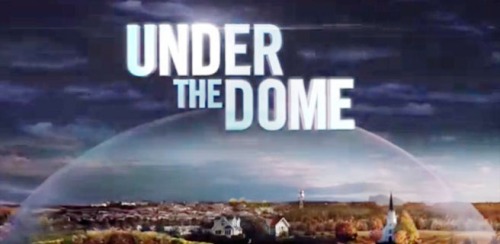 From the first pages of Stephen King’s
From the first pages of Stephen King’s 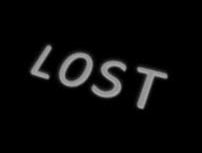 I also jumped each time Lissa the librarian fiddled with her ankh necklace (p. 430). The Egyptian ankh (known as
I also jumped each time Lissa the librarian fiddled with her ankh necklace (p. 430). The Egyptian ankh (known as 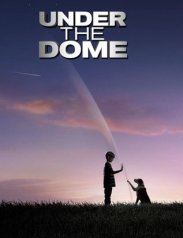 Hopefully, King, Vaughn, and Bender will ultimately follow King’s own advice. Meanwhile, there were approximately 500 pages cut from the original draft of the novel, so there are plenty of new story lines to explore.
Hopefully, King, Vaughn, and Bender will ultimately follow King’s own advice. Meanwhile, there were approximately 500 pages cut from the original draft of the novel, so there are plenty of new story lines to explore.



 It’s a bit like that comfortable feeling of putting on a favorite sweater when you start a new Dickens—his rich, inviting words and his distinctive characters. I usually read his books in the winter, by the fire. Even though they are nice and thick, I just can’t work them as beach books, perhaps because they are so dense and so descriptive—and often so serious in theme.
It’s a bit like that comfortable feeling of putting on a favorite sweater when you start a new Dickens—his rich, inviting words and his distinctive characters. I usually read his books in the winter, by the fire. Even though they are nice and thick, I just can’t work them as beach books, perhaps because they are so dense and so descriptive—and often so serious in theme. And watch out Disney World, Charles Dickens is feted his own theme park,
And watch out Disney World, Charles Dickens is feted his own theme park,  If you’re Catholic and you’ve been to church lately (it is Advent after all,
If you’re Catholic and you’ve been to church lately (it is Advent after all, 


